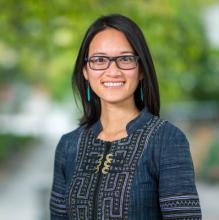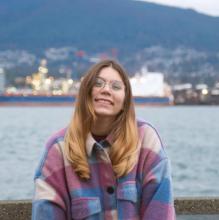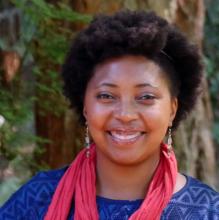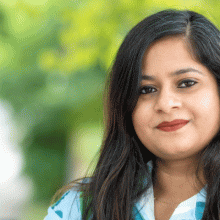Combining urban planning, gerontology, the humanities and neuroscience, Louisa seeks to untangle the causes underlying the record-high suicide rates among the older adults in Singapore, and design and implement policy-based remedies to this crisis. Drawing from her background in city planning, Louisa's work will produce new policy formulations for Singapore and Canada that could better address the needs of ageing populations and older adults.
Research Description
My project, prompted by record-high suicide rates among older adults (aged 65 and above) in Singapore over recent years, investigates the social epidemiology of stress to understand how seniors endure the challenges of cognitive and physical decline amid the economic pressures of living in a global city. I draw inspiration from across the disciplines of urban planning, gerontology, the humanities and neuroscience to inform this multidisciplinary research. While Singapore has done well to retrofit the infrastructure hardware of the built environment to make it age-friendly, more needs to be done in terms of heart-ware. Through a critical urban ethnography of fieldwork, oral histories and archival analysis, I take a genealogical approach that traces the impacts of urban policies and housing relocation on seniors’ lived worlds and the endemic stresses that inequalities create to assess the adequacies of ageing policies in providing meaningful ageing and eldercare support. I focus on how culture mediates help-seeking behaviour, healthcare beliefs and the continued prevalence of mental health stigmas, as well as the extent to which breakdown of community institutions might have contributed to seniors’ isolation. I illustrate how these considerations shape older adults’ perspectives towards ageing – their attitudes and ways of meaning-making, resilience (and lack thereof) and aspirational horizons as they enter late life. In doing so, I hope to improve ageing planning in Singapore, to bring a different AI – a lens of anthro-intelligence - into policy formulation. This research thus highlights anxieties and stresses prevalent among older adults through their life-course and urges that their needs be addressed more pointedly. Against the backdrop of technological affordances and the attractiveness of complexity science and big data analytics in the domain of urban planning, this research is a reminder that critical ethnography of the lived experience is a necessary complement to be embedded in policy analysis, sense-making and implementation. The pandemic has exposed the vulnerabilities of seniors everywhere with its attendant mental well-being concerns. There is a need to plan better with social and affective infrastructure to integrate seniors within communities. This is particularly relevant for immigrant-receiving societies like Canada. As such, I hope that this project through the deep-dive into the lived-worlds of ageing older adults in Singapore (three-quarters of Singapore's population are of Chinese ethnicity) would also contribute towards improving intercultural knowledge here in Canada to: enhance community engagement schemes, contextualize ageing governance and planning strategies, recognize how culture shapes (mental) healthcare practices and enrich place-making efforts.
What does being a Public Scholar mean to you?
Being a Public Scholar is an affirmation of the work that I do and believe in – to bring to light through dedicated research the invisible stories of everyday life especially among those marginalised and vulnerable. I see research as a powerful tool towards reshaping lives. The Public Scholar platform enables my scholarship to be the ammunition that can hone a more empathetic perspective to attenuate the bluntness of policies and regulations, so that people’s lives can be improved. It is a motivation for me to continue to grow through what Edward Said (1994:76) calls ‘amateurism’ (rather than specialism) in the representations of an intellectual – where the desire is to be moved not by profit or reward but by love for and unquenchable interest in the larger picture, caring for ideas and values despite the restrictions of a profession.
In what ways do you think the PhD experience can be re-imagined with the Public Scholars Initiative?
The Public Scholars Initiative is an excellent vehicle to attract, promote and support PhD scholars who think out-of-the-box, who are visionary leaders passionate in their advocacy to make intellectual pursuits socially relevant, whose inter/non/multi-disciplinary work traverses multiple sectors, who seek to circumvent gatekeepers of disciplinary silos, who use innovative methods, who are activists and work with people 'in the trenches' and who challenge existing professional paradigms. We sure can do with a lot more re-imagining to make the world a better place for all!
How do you envision connecting your PhD work with broader career possibilities?
I am passionate about teaching and research, and I see multitudinal possibilities in and beyond the university – in governance and public policy sectors, in think-tanks, in private consultancies with a social bent, in non-governmental and community organisations, in migrant and immigrant settlement networks, and in healthcare sectors dealing with seniors and/or mental health.
How does your research engage with the larger community and social partners?
Working in the public sector in Singapore has kept me grounded. My research dealing with affordable housing, diversity and multicultures took me into public housing estates, foreign worker dormitories and expatriate hang-outs. I also work with politicians, government agencies, and private sector stakeholders. From time to time, I interact with city planning professionals from all over the world, helping me to appreciate the gamut of urban issues different cities face. I have also been very blessed to learn from and be guided by some of the most astute minds and wisest people within and beyond the Singapore public service. These exposures have seeded a love for connecting with lay people as well as social and practitioner communities, providing a keen reminder to refrain from being comfortable in the ivory tower. As doctoral candidates, I believe we have an added obligation to translate the training invested in us and the knowledges we have gleaned into an applicability that improves society. As a guest on unceded Musqueam and First Nations’ lands presently, I look forward to getting to know the Metro Vancouver region better and to broaden my networks so that I can contribute back to society. My experiences as a planner and my research traversing ageing planning, housing, healthcare and community sectors would hopefully open opportunities for me to be of service to Canadians, offering possibilities for engagement with (among others) immigrant settlement organisations, eldercare and healthcare outfits, community set-ups, planning practices and public sector agencies.
Why did you decide to pursue a graduate degree?
Pursuing graduate work has always been a bucket list item as I love intellectual inquiry and entering the world of ideas. However, with the unfortunate passing of my father when I was 18, my mother had requested that I remained in Singapore to finish my undergraduate studies, after which I entered the workforce. This sojourn into working life became a career in planning and policy research that spanned many years. About 5 years ago, however, I decided to return to academia to pursue my Masters of Social Sciences at the National University of Singapore and am now continuing with doctoral work at UBC. It has been a journey filled with moments of trepidation but also so much joy. I had reached a point in my career where I felt I needed space to intellectually grow so that I could take my passions and advocacy to a different level; to be able to gain the credentials to be taken seriously and be an effective change agent to push for re-imaginings I wanted to see. My exposures in work and life have made me more sensitive to understanding people’s lived worlds and their challenges. This has shaped my outlook as an administrator, planner, researcher and practitioner. These experiences have also afforded perspectives into my scholarship that emphasize pragmatic wisdom in navigating the ‘how-tos’ of trying to crystallize knowledge-in-action and to see the multi-faceted connections of broader forces and everyday social practices, which in turn inform a more contextual and richly nuanced knowledge production.
Why did you choose to come to British Columbia and study at UBC?
I visited UBC as part of an official trip with a Singapore delegation and fell in love with the UBC campus and academic culture instantly! I told myself that if I ever were to pursue doctoral work, this would be the place. Lo and behold, this has come true thanks to UBC’s generous International Doctoral Fellowship that enabled me to move here with my family to pursue doctoral studies at SCARP (School of Community and Regional Planning). UBC offers a thriving intellectual climate with stellar faculty across the many disciplines where my research interests straddle. I have been fortunate to learn and nurture friendships across Geography and Urban Studies, the Centre for Migration Studies, the Centre for Southeast Asian Research (CSEAR) and the School of Public Policy and Global Affairs (SPPGA). Most importantly, I am so grateful to be rooted at SCARP, highly regarded as a giant among North American planning schools for its social and community planning focus. I have benefitted much from SCARP’s forward-looking lens, its embrace of stakeholder partnerships across different sectors and its relentless pursuit for social change, justice and inclusivity - inspiring me to likewise be a warrior in these causes. Thank you SCARP for being a champion of my work and for the warm welcome into your community!




